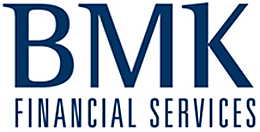As the US Federal Reserve (the Fed) prepares financial markets for incremental interest rate rises, we take a look at what this might mean for global listed infrastructure assets.
Infrastructure assets can have both bond-like and equity-like characteristics
Infrastructure assets, particularly listed infrastructure companies, typically exhibit total returns that have some similarities to both equities and bonds. Some infrastructure assets will have revenue streams more similar to bonds, while others will have a higher equity comparable component.
For example, the revenue a toll road generates depends on the amount of traffic using the road and the amount each vehicle pays. Whilst the volume of traffic varies similar to the sales fluctuation of other companies, the toll fee is often fixed by the regulatory authority or the concession contract.
Another example is in the oil, gas storage and transportation sector where assets, such as oil and gas pipelines, often have minimum guaranteed revenue streams supported by contractual agreements. The users of the pipelines must agree to pay for the use of its assets for up to 15 or 20 years, which effectively guarantees the return a pipeline will make. This gives this type of asset defensive characteristics and a more fixed income type profile to the revenue stream.
Infrastructure assets where revenue profiles are either fixed, or bound within defined ranges and have low growth opportunities, are sometimes referred to as ‘bond proxies’ as they have similar revenue streams.
How do interest rate expectations affect infrastructure?
In a steepening interest rate curve environment (where future interest rates are expected to increase more when compared to shorter-term rates) long-term assets with fixed income characteristics, such as infrastructure, tend to under perform against both short term fixed income instruments and equities. Higher expected future interest rates can be indicative of an improving economy where equities are expected to outperform bonds and bond proxies. As such, investors are more likely to sell their bond-like assets and invest in equity-like investments in order to benefit from the economic upswing.
In a flattening interest rate curve environment (where future interest rates are expected to be more closely aligned with short-term rates) bond proxy infrastructure assets tend to outperform equities, in general. This can be for many reasons but includes, at least partly, the reverse of the above scenario. As longer-term interest rates are expected to be more in line with short-term rates, there is no requirement for bond proxy assets to fall in price to compensate for rising long-term interest rates. In addition, equities are generally considered riskier than quality fixed income assets; therefore assuming that the future economic environment remains broadly similar, there is less expectation for equities to outperform bonds.
What does this mean for investors?
We believe that as the Fed starts to steadily increase rates, creating a shift from a rising to a more flattened interest rate curve environment, core and pure infrastructure assets will outperform global equities. However, the potential of an individual company to outperform will depend on the specific sector that a company operates in, as well as the fundamentals of the company. An example of a company with characteristics that would typically benefit in a steepening environment would be one operating in the transportation sector, e.g. a toll road or an airport.
Companies that should benefit from a future flattening interest rate curve environment are those with more bond proxy characteristics (like some organisations in the communications field) and those companies with contractually supported revenue streams (such as organisations in the oil and gas pipelines field).
Final thoughts
There is the opportunity for an actively managed and well-positioned infrastructure portfolio to take advantage of both current and future interest rate environments and transition to a different mix of optimal assets as the Fed starts to progressively raise interest rates.
We believe now could be a suitable time for investors to gain exposure to the secular growth potential in global infrastructure spending, and an attractive and growing dividend yield secured by long-term contracts or regulation.
About the Author
Tim Humphreys is the head of AMP Capital’s Global Listed Infrastructure Team with over 15 years’ experience in the UK and Australia. Tim also leads the research effort of infrastructure companies in the Americas.








